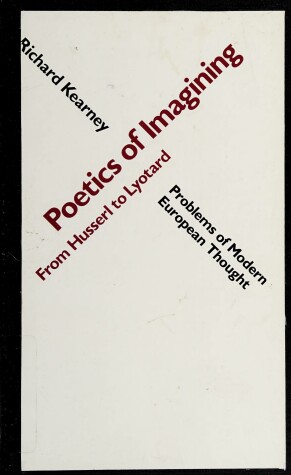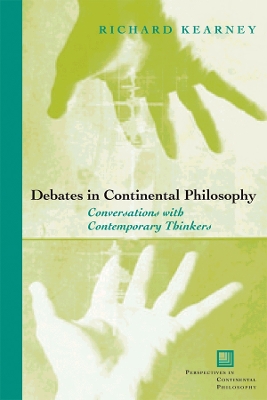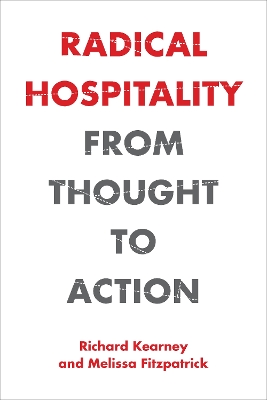Perspectives in Continental Philosophy
3 total works
This important book brings together in one volume a collection of illuminating encounters with some of the most important philosophers of our age-by one of its most incisive and innovative critics.
For more than twenty years, Richard Kearney has been in conversation with leading philosophers, literary theorists, anthropologists, and religious scholars. His gift is eliciting memorably clear statements about their work from thinkers whose writings can often be challenging in their complexity.
Here, he brings together twenty-one originally published extraordinary conversations-his 1984 collection Dialogues: The Phenomenological Heritage, his 1992 Visions of Europe: Conversations on the Legacy and Future of Europe, and his 1995 States of Mind: Dialogues with Contemporary Thinkers. Featured interviewees include Stanislas Breton, Umberto Eco, Hans-Georg Gadamer, Herbert Marcus, George Steiner, Julia Kristeva, Emmanuel Levinas, and Jean-Francois Lyotard. To this classic core, he adds recent interviews, previously unpublished, with Paul Ricoeur, Jean-Luc Marion, Jacques Derrida, and George DumŽzil, as well as six colloquies about his own work.
Wide-ranging and accessible, these interviews provide a fascinating guide to the ideas, concerns, and personalities of thinkers who have shaped modern intellectual life. This book will be an essential point of entry for students, teachers, scholars, and anyone seeking to understand contemporary culture.
Radical Hospitality addresses a timely and challenging subject for contemporary philosophy: the ethical responsibility of opening borders, psychic and physical, to the stranger.
Kearney and Fitzpatrick show how radical hospitality happens by opening oneself in narrative exchange to someone or something other than ourselves—by crossing borders, whether literal or figurative. Against the fears, dogmas, and demands for certainty and security that push us toward hostility, we also desire to wager with the unknown, leap into the unanticipated, and celebrate the new, a desire this book seeks to recognize and cultivate. The book contends that hospitality means chancing one’s hand, one’s arm, one’s very self, thereby opening a vital space for new voices to be heard, shedding old skins, and welcoming new understandings.
Radical Hospitality engages with urgent moral conversations concerning identity, nationality, immigration, commemoration, and justice, moving between theory and praxis and on to the formative life of the classroom. Building on key critical debates on the question of hospitality ranging from phenomenology, hermeneutics and deconstruction to neo-Kantian moral critique and Anglo-American virtue ethics, the book explores novel possibilities for an ethics of hospitality in our contemporary world of border anxiety, refugee crises, and ecological catastrophe.


